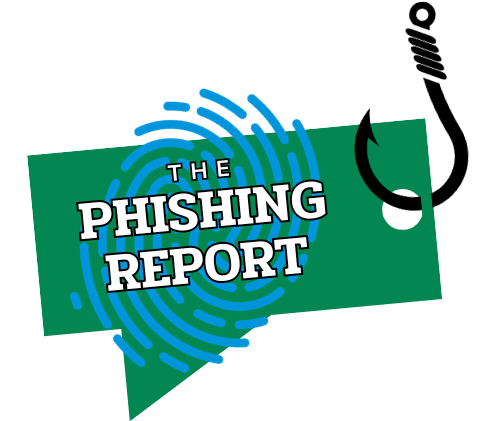Are you curious about the role of coding in cybersecurity?
Wondering if coding is essential for effective cybersecurity practices?
In this article, we’ll explore the importance of coding in the field of cybersecurity and how it enhances cyber defense.
Discover why coding skills are a necessity for cybersecurity professionals and how they play a crucial role in mitigating cyber threats.
Get ready to delve into the world where coding meets security!
Key Takeaways
- Proficiency in coding languages like Python, C++, and Java is highly valued in cybersecurity.
- Coding skills enable the analysis of malicious software and hacking techniques.
- Coding knowledge aids in the creation of tools for detecting and preventing cyber attacks.
- Coding skills are necessary for effectively protecting sensitive information.
The Importance of Coding in Cybersecurity
You’ll find that coding plays a crucial role in cybersecurity. In order to effectively protect computer systems and networks from malicious attacks, professionals in the field must possess strong coding skills and be knowledgeable in various coding languages. Programming skills are essential for developing and implementing security measures, as well as for identifying vulnerabilities and creating solutions to prevent cyber threats.
Proficiency in coding languages such as Python, C++, and Java is highly valued in the cybersecurity industry. These languages allow professionals to write secure and efficient code that can be used to build robust security systems. With the ability to write code, cybersecurity experts can develop programs and scripts that automate tasks such as monitoring network traffic, detecting anomalies, and responding to potential threats in real-time.
Programming skills also enable cybersecurity professionals to analyze and understand the coding behind malicious software and hacking techniques. By reverse engineering the code, they can identify the vulnerabilities that cybercriminals exploit and develop countermeasures to protect against them. Additionally, coding knowledge allows for the creation of tools and technologies that aid in the detection and prevention of cyber attacks.
Coding Skills: A Necessity in the Cybersecurity Field
If you want to excel in the field of cybersecurity, having coding skills is a necessity. In today’s digital landscape, where cyber threats are constantly evolving, coding skills are crucial for effectively protecting sensitive information and preventing cyber attacks.
As a cybersecurity professional, your coding skills will enable you to understand the intricacies of different programming languages and analyze the vulnerabilities in software systems.
To have a successful cybersecurity career, you need to be proficient in coding languages such as Python, C++, Java, and JavaScript. These languages are widely used in developing secure applications, conducting vulnerability assessments, and implementing various cybersecurity strategies.
With coding skills, you can identify and patch vulnerabilities, create secure networks, and develop robust security protocols.
Moreover, coding skills allow you to analyze malware and reverse engineer cyber attacks. By understanding the code behind malicious software, you can effectively detect and mitigate potential threats. Additionally, being able to code gives you the ability to develop your own cybersecurity tools and automate tasks, making your work more efficient and effective.
In conclusion, coding skills are essential in the cybersecurity field. They provide you with the technical expertise needed to secure networks, analyze vulnerabilities, and develop innovative solutions. By honing your coding skills, you’ll be well-prepared to tackle the ever-evolving challenges in the cybersecurity landscape.
In the next section, we’ll explore how coding enhances cybersecurity practices and discuss specific examples of its applications.
How Coding Enhances Cybersecurity Practices
To enhance your cybersecurity practices, coding provides you with the necessary technical skills and expertise. With the increasing complexity and sophistication of cyber threats, having coding skills is essential in order to effectively protect your systems and data from potential breaches. By understanding coding principles and having the ability to write and analyze code, you can develop robust and secure applications, identify vulnerabilities, and respond to cyber attacks more efficiently.
Here is a table highlighting the key ways in which coding enhances cybersecurity practices:
| Coding in Cybersecurity | Benefits |
|---|---|
| Application Development | Writing secure code ensures that applications are less susceptible to common vulnerabilities such as SQL injection, cross-site scripting, and buffer overflow. |
| Vulnerability Analysis | By analyzing code, you can identify potential vulnerabilities and weaknesses in software and systems, allowing you to address them before they can be exploited by attackers. |
| Incident Response | Being able to quickly analyze and understand code allows you to respond effectively to security incidents, identify the root cause, and implement necessary remediation measures. |
The Link Between Coding and Effective Cyber Defense
Understanding coding principles and having the ability to analyze and write code allows you to effectively defend against cyber threats and protect your systems and data. Coding techniques and coding languages play a crucial role in ensuring the security of your digital environment. Here are three key reasons why coding is essential for effective cyber defense:
Vulnerability identification and patching: By understanding coding techniques, you can identify vulnerabilities in your systems and applications. This knowledge allows you to proactively patch those vulnerabilities, reducing the risk of exploitation by cyber attackers.
Secure software development: Writing code with security in mind is essential for building secure software. By using secure coding practices and following coding guidelines, you can minimize the chances of introducing vulnerabilities into your software. This ensures that your applications are resistant to attacks and protects your data from unauthorized access.
Intrusion detection and response: Coding skills are crucial for developing effective intrusion detection and response systems. By analyzing code and network traffic, you can identify and respond to potential intrusions in real-time. This enables you to mitigate the impact of cyber-attacks and prevent further damage to your systems and data.
Why Cybersecurity Professionals Need Coding Expertise
Having coding expertise is crucial for you as a cybersecurity professional to effectively analyze and respond to evolving cyber threats. In today’s digital landscape, where cyberattacks are becoming increasingly sophisticated, the demand for skilled cybersecurity professionals is on the rise. To stay competitive and enhance your job prospects in this field, it’s essential to have a strong foundation in coding.
As a cybersecurity professional, you need coding skills to examine and understand the intricate workings of malicious code. By being able to read and write code, you can better identify vulnerabilities and weaknesses in software systems, enabling you to develop effective defenses against potential cyber threats.
Furthermore, coding expertise allows you to create and implement secure software solutions. By understanding how code is structured and executed, you can develop robust and resilient applications that can withstand attacks. This not only helps protect sensitive data but also safeguards the integrity and availability of critical systems.
To acquire coding skills, many cybersecurity professionals are turning to coding boot camps. These intensive training programs offer hands-on experience and practical knowledge in various programming languages and frameworks. By enrolling in a coding boot camp, you can quickly gain the necessary skills to excel in the cybersecurity field.
The Role of Coding in Mitigating Cyber Threats
By developing coding expertise, you can effectively mitigate cyber threats and protect critical systems and data. Coding plays a crucial role in cybersecurity as it allows professionals to create robust defenses against malicious actors. Here are some key points to consider:
Coding vs. Encryption: While encryption is an essential component of cybersecurity, coding goes beyond just encrypting data. It involves creating and implementing algorithms, protocols, and software solutions that strengthen overall security. Coding allows for the development of secure systems that can withstand sophisticated attacks.
Coding in Incident Response: When a cyber incident occurs, quick and effective response is crucial. Coding expertise enables cybersecurity professionals to develop tools and scripts to analyze and mitigate the impact of an incident. This includes performing forensic analysis, identifying vulnerabilities, and developing patches or fixes to prevent further exploitation.
Automation and Efficiency: Coding allows for the automation of security processes, making it easier to detect and respond to cyber threats. By writing scripts and programs, cybersecurity professionals can automate tasks such as log analysis, threat detection, and response actions. This not only improves efficiency but also reduces human error.
Frequently Asked Questions
What Are the Different Coding Languages That Are Commonly Used in Cybersecurity?
In cybersecurity, coding languages play a crucial role. Commonly used coding languages are Python, C++, Java, Ruby, JavaScript, and PowerShell. These languages enable cybersecurity professionals to develop tools, scripts, and applications to detect and mitigate security threats.
Python is widely used for its simplicity and versatility, while C++ and Java offer robustness and performance. Ruby, JavaScript, and PowerShell are also used for specific tasks like web application security and automation.
Understanding these coding languages is essential for effective cybersecurity practices.
Are Coding Skills Necessary for All Roles Within the Cybersecurity Field?
Coding skills are indeed crucial for various roles within the cybersecurity field. The ability to code allows you to understand and analyze complex systems, identify vulnerabilities, and develop effective security measures.
Whether you’re working as a penetration tester, security analyst, or incident responder, coding skills enable you to create and implement solutions that protect against cyber threats.
In today’s rapidly evolving digital landscape, having coding skills is essential for ensuring the safety and integrity of sensitive data and systems.
How Does Coding Contribute to the Detection and Prevention of Cyber Threats?
Coding plays a crucial role in the detection and prevention of cyber threats.
By utilizing coding techniques, you can create algorithms and software that can identify suspicious activities and potential vulnerabilities in computer systems.
These coding skills enable you to develop and implement robust security measures, such as encryption and firewalls, to protect against cyber attacks.
Overall, coding is essential in cybersecurity as it empowers professionals to proactively safeguard networks and data from malicious actors.
Can Non-Coders Effectively Contribute to Cybersecurity Efforts?
Non-coders can certainly contribute to cybersecurity efforts by using non-technical approaches. While coding skills may impact career advancement in the field, they aren’t essential for everyone.
Non-coders can focus on areas such as risk assessment, policy development, and user awareness training. By understanding the principles of cybersecurity and staying updated on the latest threats, non-coders can play a crucial role in protecting organizations from cyber-attacks.
Are There Any Specific Coding Techniques or Practices That Are Particularly Effective in Mitigating Cyber Threats?
To effectively mitigate cyber threats, you must understand the importance of coding techniques and practices in cybersecurity.
Take application security, for example. By implementing secure coding practices, you can prevent vulnerabilities in software that hackers may exploit.
Additionally, machine learning in cybersecurity relies on coding to develop algorithms that detect and respond to threats in real-time.
Coding is essential in safeguarding digital systems and staying one step ahead of cybercriminals.
Final Thoughts
Coding plays a vital role in cybersecurity, acting as a necessary tool for professionals in the field.
The ability to code effectively enhances cybersecurity practices, strengthens defense against cyber threats, and mitigates potential risks.
Therefore, it’s imperative for cybersecurity professionals to possess coding expertise in order to effectively protect against cyber attacks.
The reliance on coding in cybersecurity is undeniable, as it serves as a crucial component in safeguarding sensitive information and maintaining cyber resilience.

